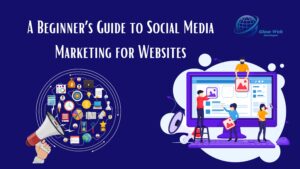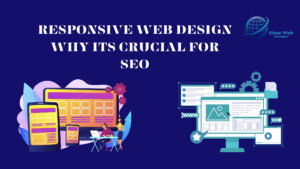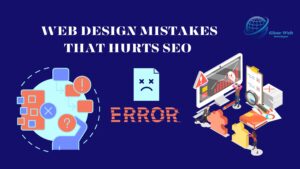The fast-paced digital world demands the most advanced and feature-rich e-commerce sites. Master SEO for e-commerce websites to boost rankings, drive traffic, and increase sales for your online store! When building an e-commerce store, or adding features to existing stores that will improve them as well — it’s good to have the functionality and people spend more time shopping online. The following list of the most important features for online stores in 2024, including design, functionality, and user experience, is compiled below.
1. Mobile-Friendly E-commerce Design
The prevalence of mobile devices in online shopping has made it necessary to design e-commerce websites that are user-friendly. seo-for-e-commerce-websites With responsive web design, your site can be optimized for optimal user experience across all devices. seo-for-e-commerce-websites This allows it to work seamlessly with screen sizes and browsers. Efforts to reduce bounce rates by simplifying navigation and optimizing page load speed for mobile will result in better conversions.
2. E-commerce Product Search and Filtering
The key to e-commerce is speedy product search and filtering for customers.
- Create a search bar that provides automatic suggestions.
- Filter results by size, price, color, and brand.
- Add a category (e.g, by popularity or cost) to make shopping more convenient.
Search and filtering systems that are effective reduce friction and increase sales.
3. Secure Payment Gateways for Online Retailers
A reliable payment process builds trust and ensures customer satisfaction.
- Identify and provide various safe payment options for online retail platforms, including PayPal in the US or Stripe and credit card alternatives.
- Secure the data during checkout by using SSL certificates.
- Display security badges to reassure customers that their data is safe.
This not only improves user confidence but also reduces cart abandonment.
4. Fast Checkout Process Optimization
A lengthy or complicated checkout process can drive potential customers away.
- Implement a guest checkout option to avoid forcing users to create accounts.
- Use auto-fill forms to speed up data entry.
- Enable multiple payment and shipping options to provide flexibility.
By focusing on fast checkout process optimization, you minimize friction and boost conversions.
5. Customer Reviews and Ratings System
Shoppers rely heavily on social proof before making purchasing decisions. Integrating a customer reviews and ratings system helps build trust.
- Display product ratings and customer feedback prominently.
- Encourage customers to leave reviews post-purchase.
- Use verified purchase badges to add authenticity to reviews.
Positive reviews increase credibility, while constructive feedback offers valuable insights for improvement.
6. SEO for E-commerce Websites
Search Engine Optimization (SEO) plays a key role in driving organic traffic. Some SEO for e-commerce websites best practices include:
- Using descriptive and keyword-rich product titles and descriptions.
- Optimizing product images with alt text.
- Implementing clean URLs and an XML sitemap.
- Creating a blog to drive additional traffic through relevant content.
SEO ensures your store ranks higher on search engines, leading to more visibility and sales.
7. E-commerce Website User Experience (UX)
A good user experience is crucial for e-commerce websites to remain engaging and informative.
- Ensure user-friendly navigation, including categories and product pages.
- Use high-quality product images and videos to convey the benefits of the product.
- Use sticky cart and wishlist as alternatives to enhance shopping convenience
By utilizing effective UX, you can lower bounce rates and increase site time and conversions.
8. E-commerce Website Best Practices 2024
By adopting the e-commerce website best practices for 2024, your store can remain competitive in today’s marketplace.
- Chatbots that use AI to provide immediate assistance to customers.
- Individual suggestions to improve the experience of users.
- Integration with social media platforms for easy product sharing.
- Offering subscription services to create repeat revenue streams.
Keeping up with current trends will give your store a head start.
Conclusion
If an online store embodies these indispensable features, seo-for-e-commerce-websites it will provide customers with a hassle-free and enjoyable shopping experience. This includes everything from design of e-commerce that is mobile friendly and the ability to search and filter products for a high product density, to having secure payment gateways in online stores and quick checkout times. Master SEO for e-commerce websites to boost rankings, drive traffic, and increase sales for your online store “. The combination of SEO and good UX design in e-commerce websites can result in increased traffic, customer retention, and revenue generation. To ensure your store stays on top of the game, consider 2024 best practices for e-commerce websites.










